In the final weeks of the spring 2015 term, Proctor en Segovia hits the road, first traveling from Segovia to Barcelona via high-speed train and then north along the Catalan Costa Brava. Next, on the final long excursion of the term, the group leaves from Segovia in rented vehicles, driving southwest along the Sistema Central mountain range, and then crossing into the Spanish region of Extremadura and Portugal’s Alentejo region. Finally, students traverse eastern Andalucía, visiting Sevilla, Cádiz and rural sections of the Costa de la Luz on the Strait of Gibraltar!
Barcelona and Cataluña
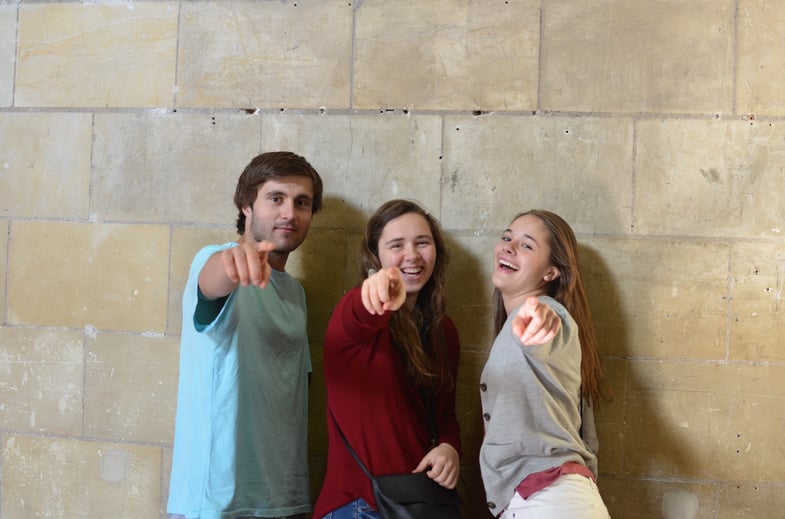
Photo credit: Hal Ford
We all get out of the metro station with our luggage in hand and begin to walk towards the apartment building we would be staying in for the next two nights in Barcelona. We hike up the never ending spiraling staircase and arrive at a large door that opens up to a large apartment room. After everyone gets settled into the apartment we follow our instructors down the busy streets to the Sagrada Familia. Standing in awe at the towering church in front of us, we all pull our phones out to snap a couple of pictures. The inside of the church was beautiful and there was so much to look at. Light of every color was pouring in through the windows in every direction. I have never seen anything so beautiful.
~ Maddie Lidbeck
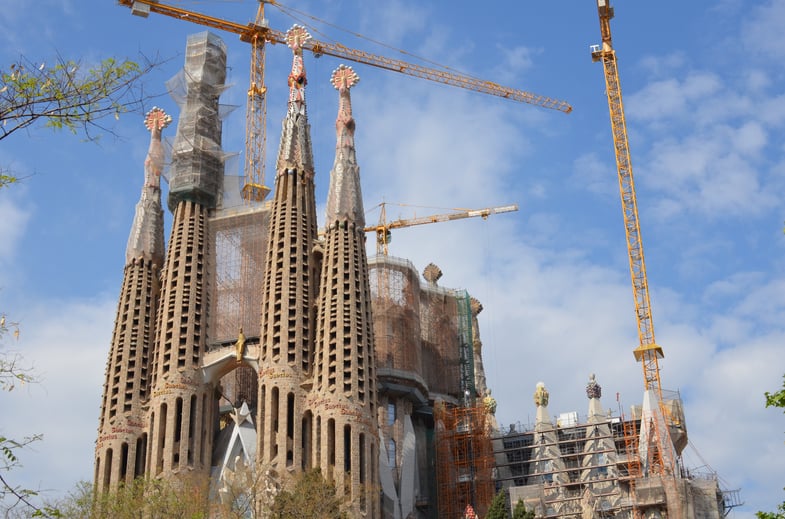
Gaudí’s Sagrada Familia, still under construction. Photo credit: Maddie Lidbeck
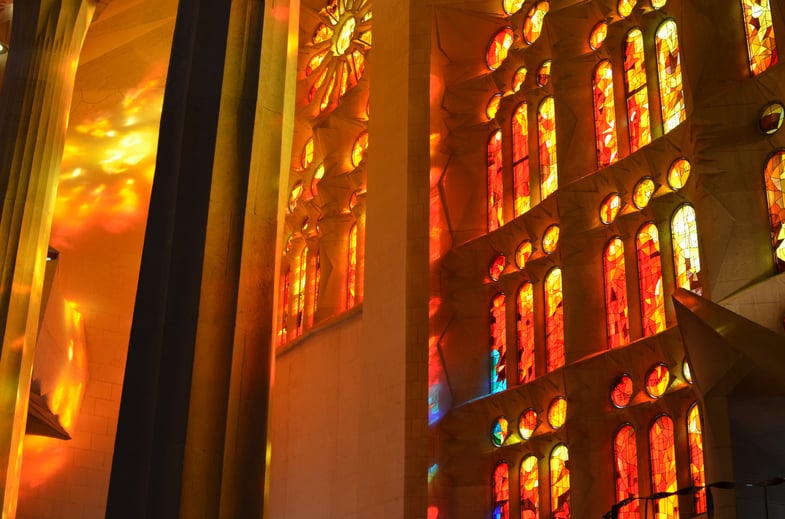
The late afternoon light filters through stained glass windows. As is true for many of Gaudí’s design principles, light in the interior of the church was meant to imitate nature, in this case light passing through a forest canopy. Photo credit: Maddie Lidbeck
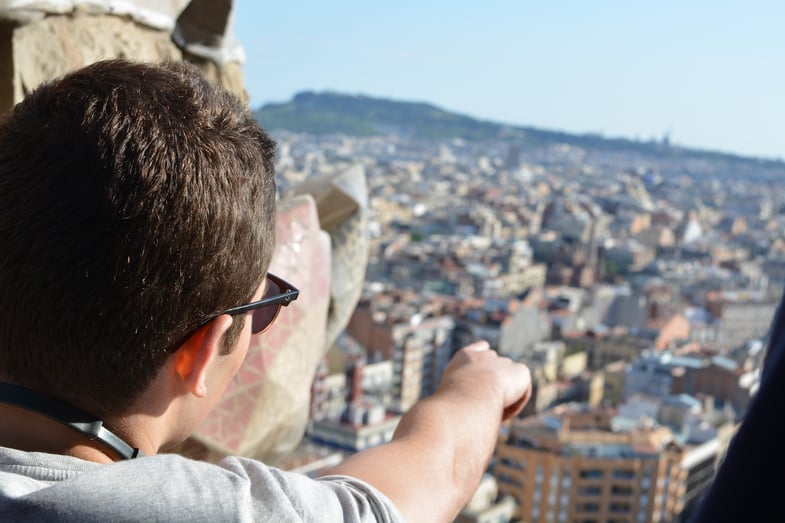
At the top of one of the passion facade towers
In Barcelona we spent the second day visiting historic sites around Barcelona in small groups or alone. I was able to go to Park Guell, created by Guadi as a small town outside the city to escape the hustle and bustle of Barcelona and which is now a park with mosaics. We drove to Costa Brava the next day and went on a scenic hike along the coast and ended up in a small one hotel village where we ate a delicious dinner. Some ate bass caught that morning, fresh calamari, paella and the rest stuck to a traditional steak or a pasta dish. The last few days were spent in beach towns along the coast.
~ Hailey Blatchford
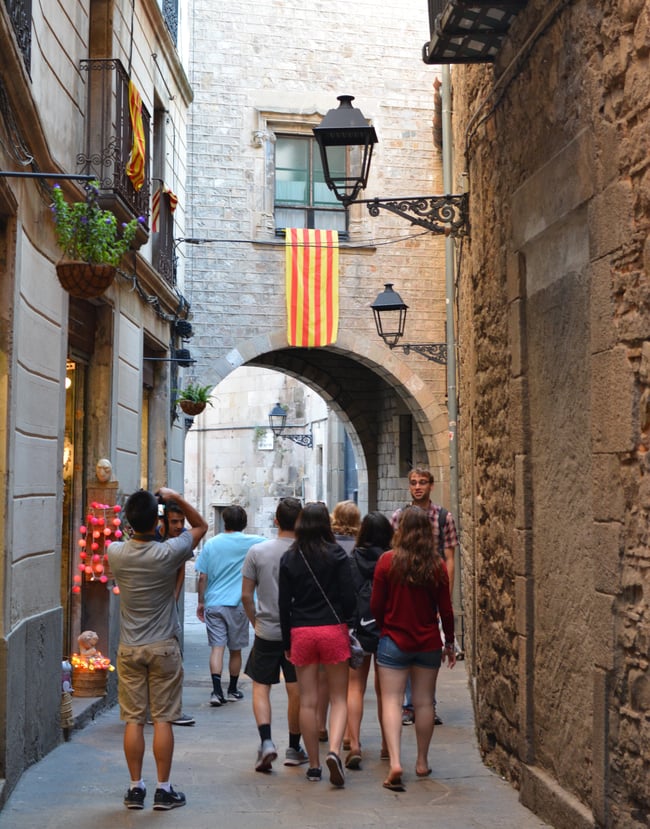
A stroll through Barcelona’s gothic quarter and its layers of history
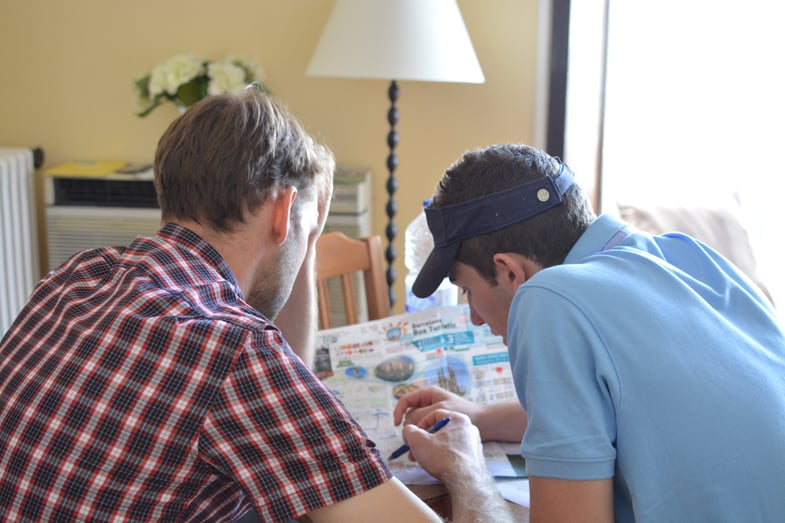
Planning for a history small group (or “solo”) project in the living room of our L’Eixample guest house.
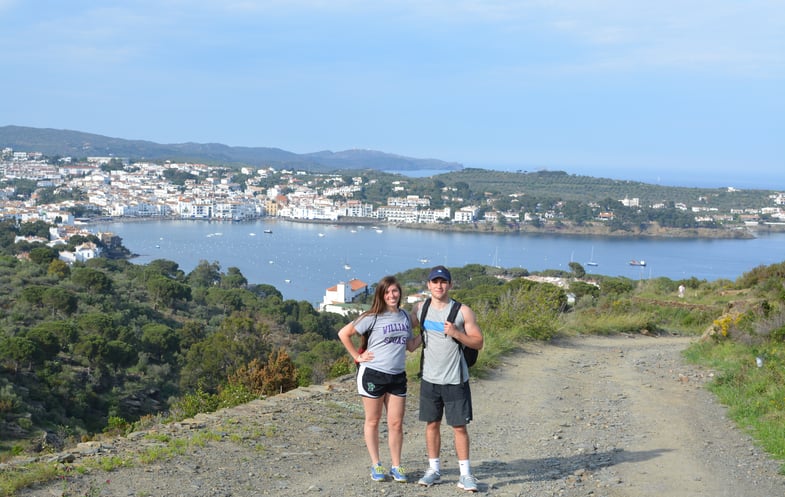
From Barcelona we drove north to Cadaqués, where Salvador Dalí lived for much of his career. Here we did an afternoon hike along the stunning Costa Brava on the Gran Recorrido 92 trail!
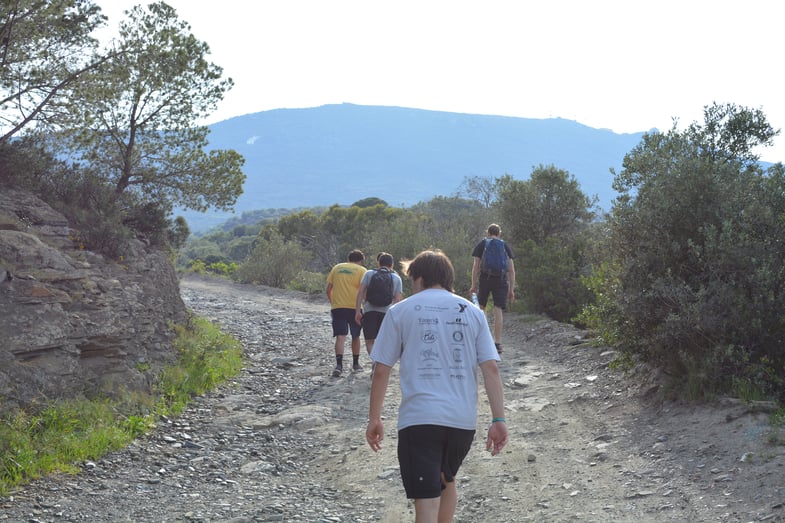

Fresh seafood paella hits the spot after hours of hiking along the Mediterranean!
Portugal and Andalucía
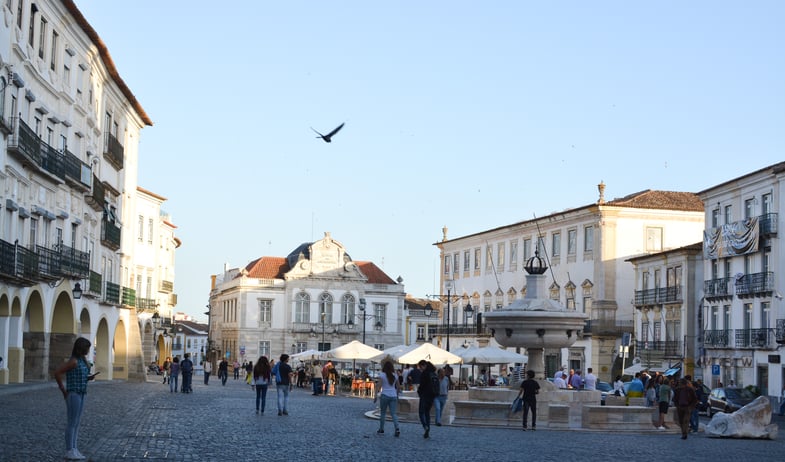
Several of Spain’s regions, including Extremedura, border Portugal. On our drive from Segovia to Sevilla, we stopped for 24 hours in the city Évora, located in Portugal’s Alentejo region.
This was our final excursion and it was going to be the longest one yet! We were making our way to Évora, Portugal, and I was very excited to get to go to another European country. When we crossed into Portugal there was no border control because some countries in the EU signed a document saying that you could pass through freely just like crossing from state to state. I was expecting a big sign and a huge deal when we crossed in to Portugal, but it was just a sign saying welcome to Portugal. Unlike Spain, Portuguese people were much more comfortable with speaking English than Spaniards were, and this made it very easy to communicate and find our way around the new country. In Évora I found an interesting sun hat that was made out of cork. It was pretty expensive, but I thought when am I ever going to get a chance to say I bought a cork sun hat in Portugal again?
~ Jack Hall
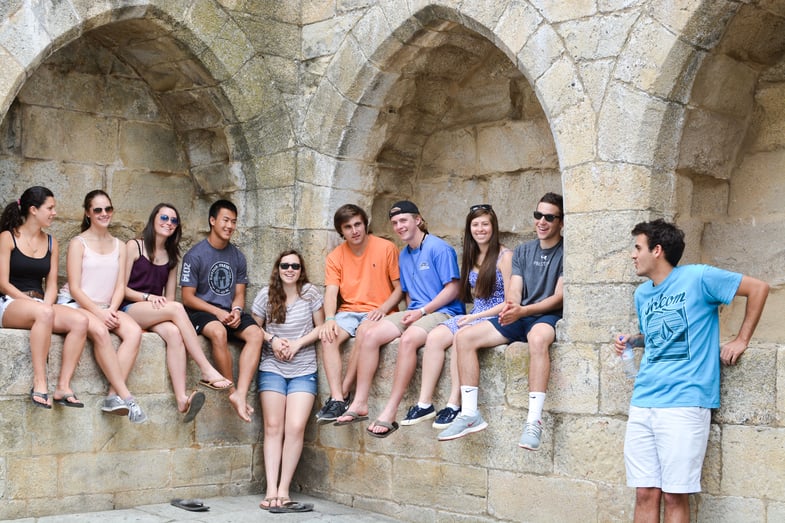
Not surprisingly, Portugal shares much of the same history as Spain. Évora was settled by the Celts, it was an important Roman military outpost, a center of trade for the Moors, and, between the 14th and 16th centuries, a favorite city of the House of Avis, the ruling dynasty when Portugal became a global sea power.
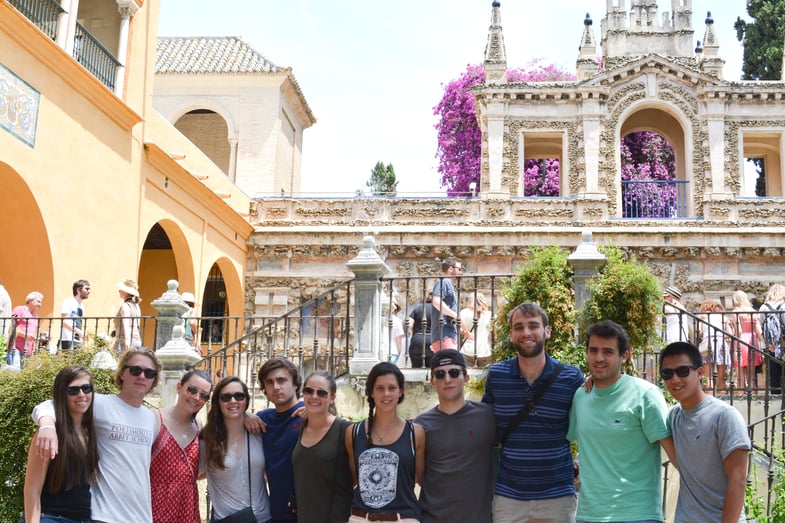
Posing in the gardens of the Alcázar of Sevilla built primarily in the 1300s by rulers of the Kingdom of Castilla, designed in unashamed imitation of Moorish Islamic architecture.
Since the beginning of September, I have not experienced temperatures exceeding 80 degrees. However, it felt like it was a thousand degrees in Andalucía. Arriving in Sevilla, I was excited to finally get out of the car, but I was dreading stepping into the shimmering heat.
As we were waiting in line for the Flamenco show, I was buzzing with anticipation. For the past few days, I had been researching flamenco for History class and I could not wait to see a live show. The mix of the guitar, singing, and dancing, was amazing.
Exploring Sevilla was quite the adventure. After getting lost multiple times we finally found a pizza restaurant. Sevilla is a city full of light and energy. Seville was one of my favorite cities that we visited.
~ Maddie Humphrey
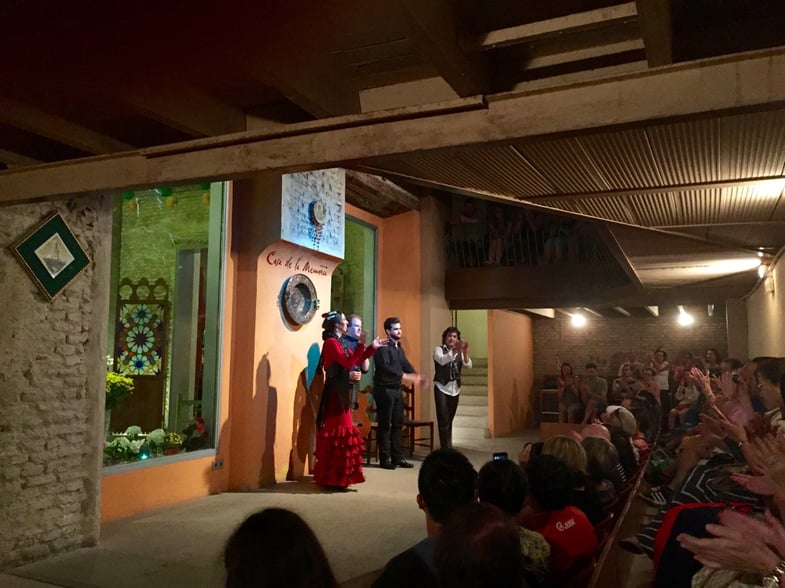
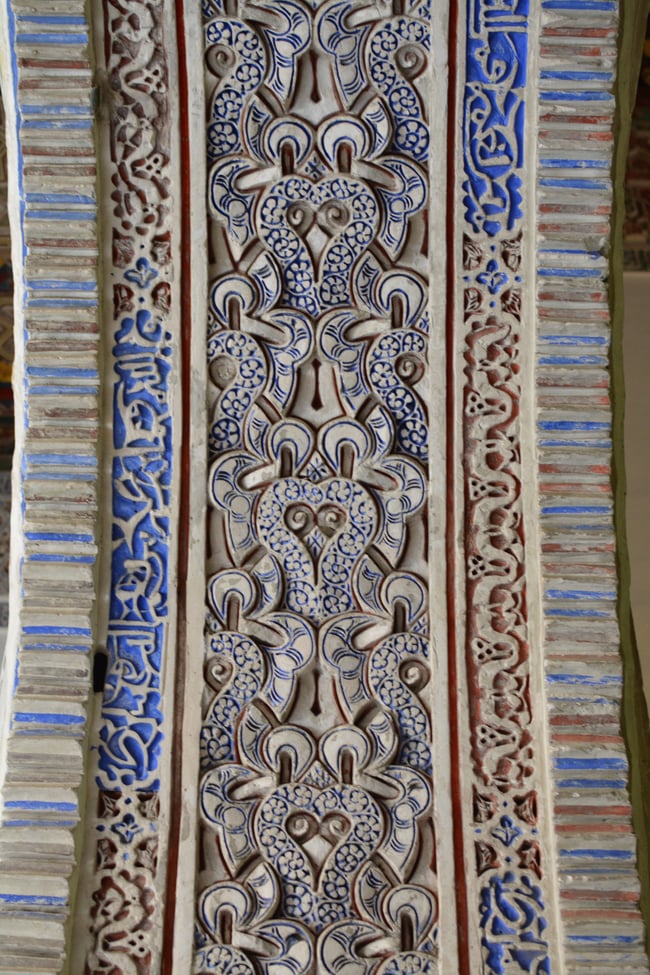
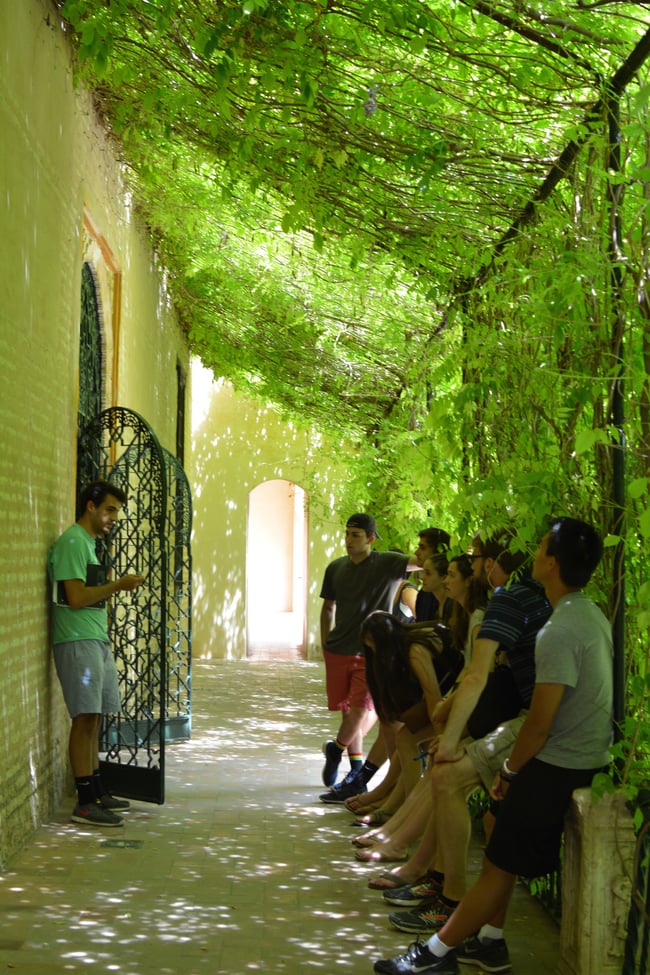
Students presented to their peers on various topics of Andalucían history and culture, from the religious and secular importance of water in Islamic Iberia to flamenco music and dance and the Romany (Gypsies).
In the hot streets of Seville we had a chance to spend four hours alone roaming the streets and doing activities we would enjoy ourselves. We all left from the Cathedral and went our own ways. I spent the day walking in the heat and reflecting on what we have done all term and what I wanted to get out of my last ten days in Spain.
~ Noah Barehmi

Getting ready for a presentation in Cádiz’s covered market, after making purchases to take with us to our rented rural house!
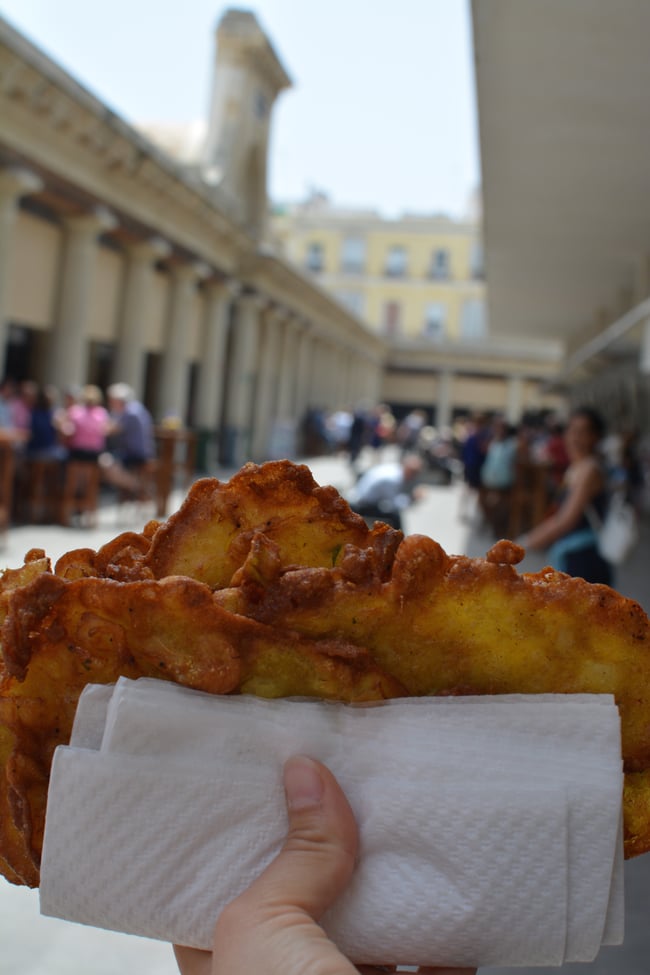
Tortitas de camarones
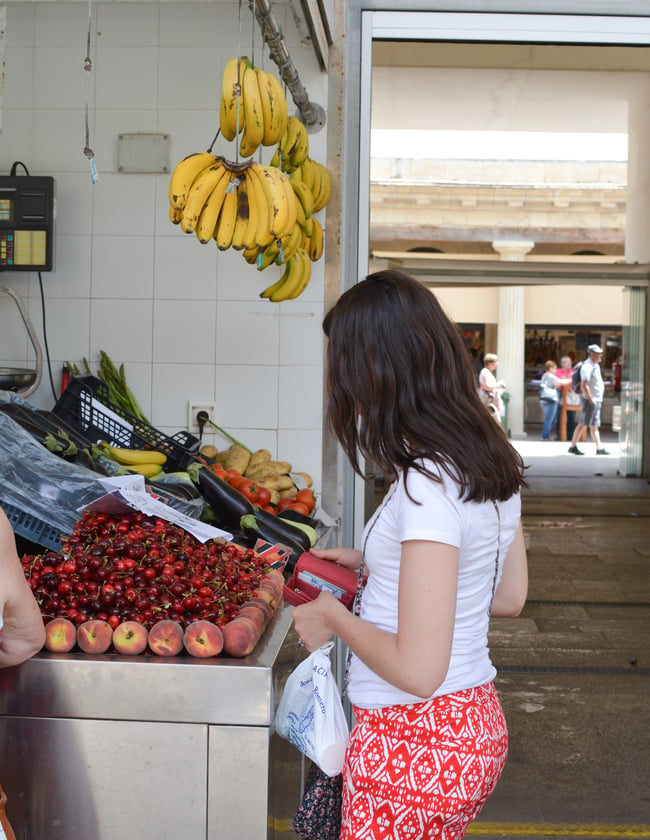
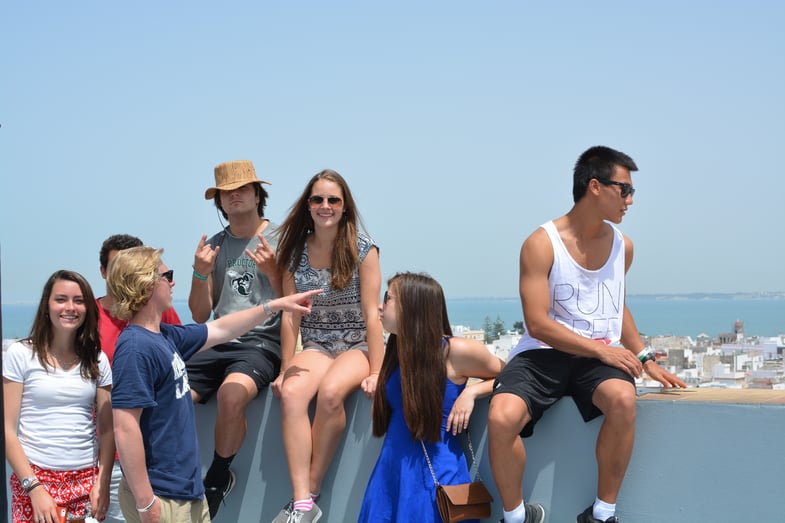
On top of the Torre Tavira, an 18th century merchant watch tower that overlooks the entire Cádiz old town and harbor.
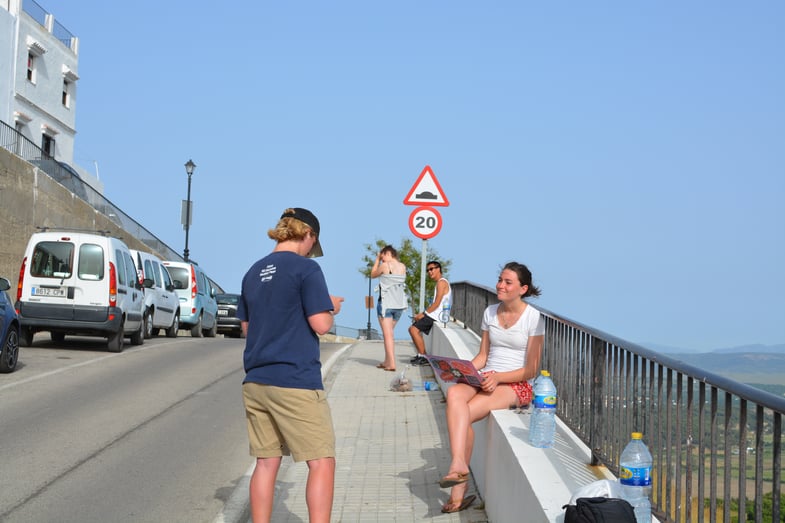
Maddie records a take of her student leader speech in the beautiful whitewashed hill town of Vejer de la Frontera with the beginning of the Strait of Gibraltar as her backdrop.
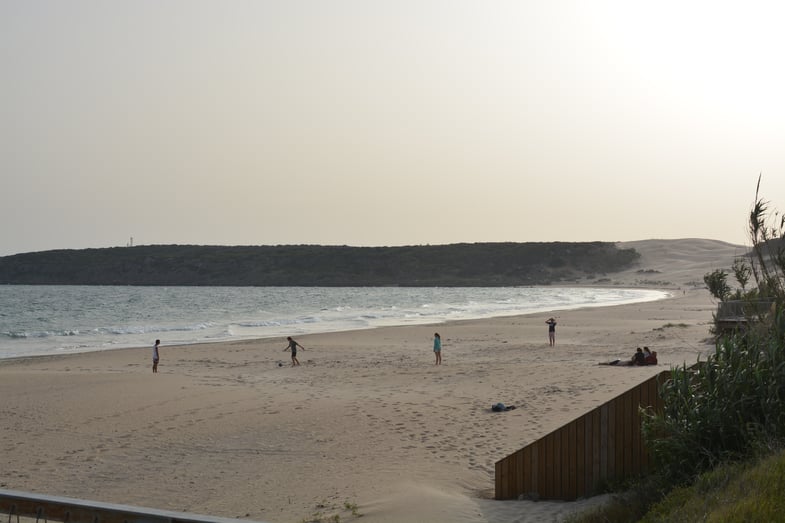
La playa at Bolonia
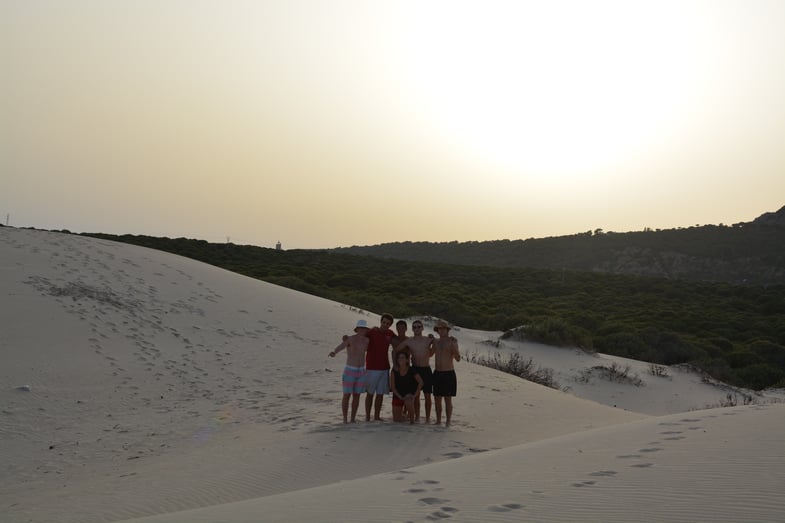
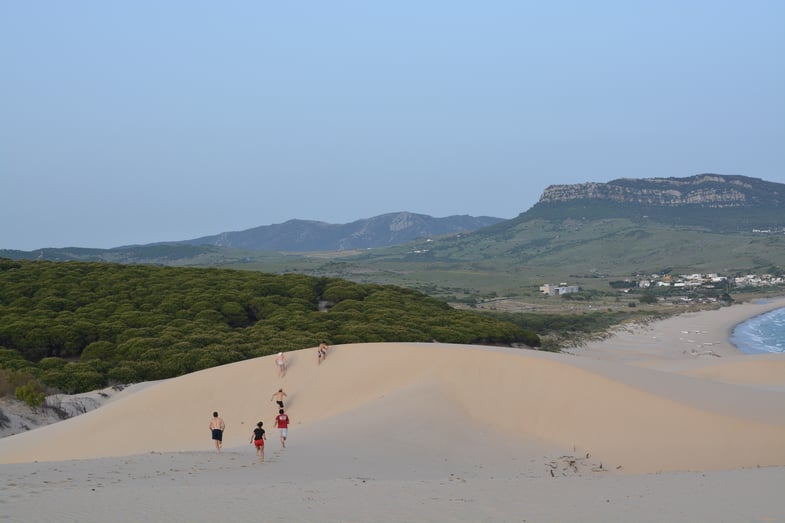
Hiking the somewhat cleared trail with our newly adopted dog, Jarvis, had me contemplating if we brought enough water to survive. We woke up that morning, ate breakfast and regained hydration from the H2O we lost that night due to the fact we basically slept in a sauna it was so hot. But that didn't stop us from exploring our surroundings! Everyone started hiking as our sweet dog Jarvis followed. We don't really know where Jarv came from, but we accepted him as our own. After we started hiking, twenty minutes in, the path become unclear and we ended up climbing rocks and coming across the view of Morocco. Noah and I were exhausted, however, and decided to go find a nice rock with shade to lay upon. We spent an accurate amount of forty five minutes laying in the shade and getting ready to go swimming.
~ Emma Walsh
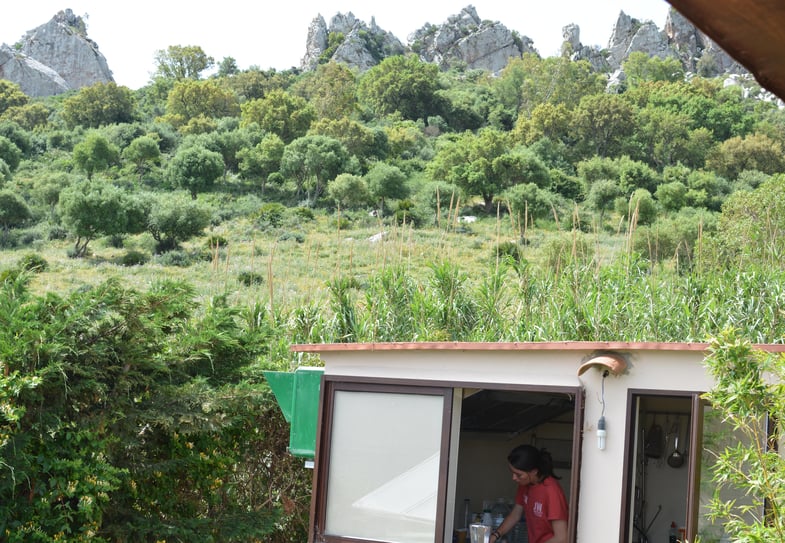
In between Tarifa and the beach at Bolonia, our rented house was adjacent to impressive coastal peaks and rock formations. In the opposite direction were views of Tarifa on the mountains of Morocco in the distance across the Strait.
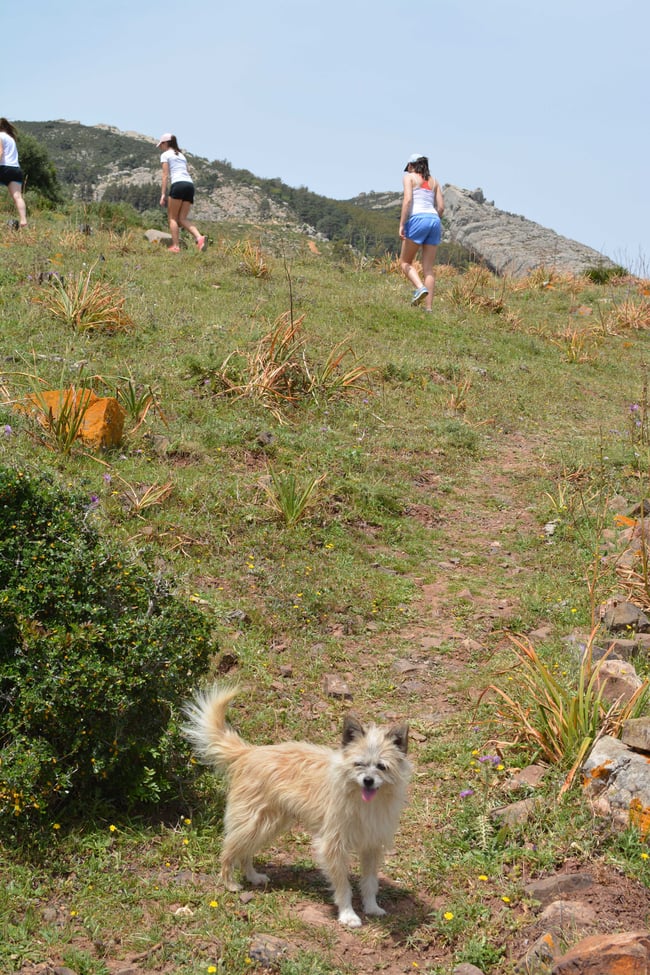
Our neighbor and new companion “Jarvis” accompanies us on a hike in our backyard!
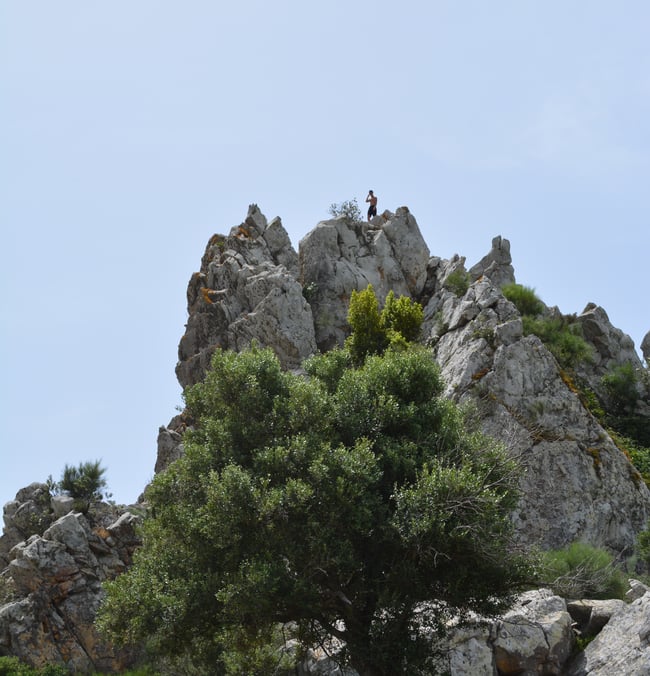
Hal in his element
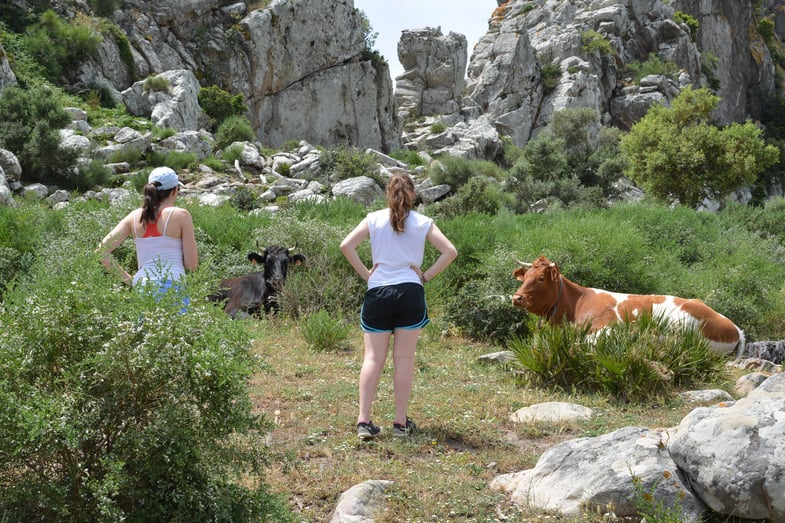
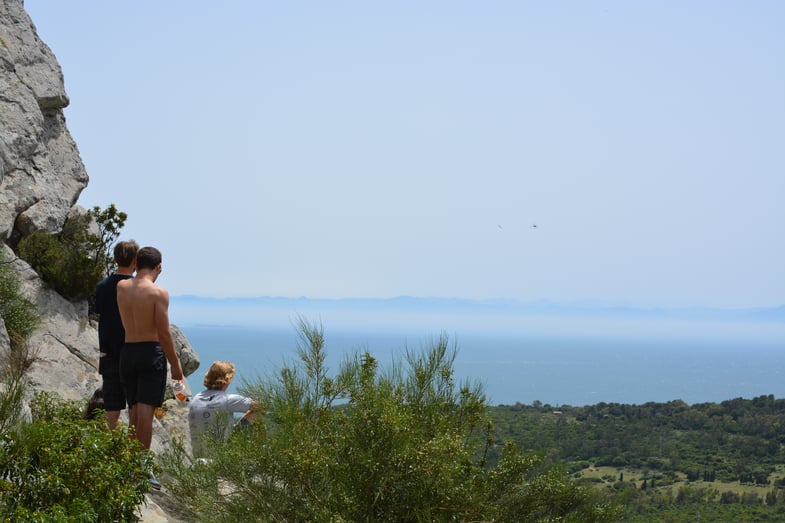
Views of Morocco’s Rif mountains across the Strait of Gibraltar
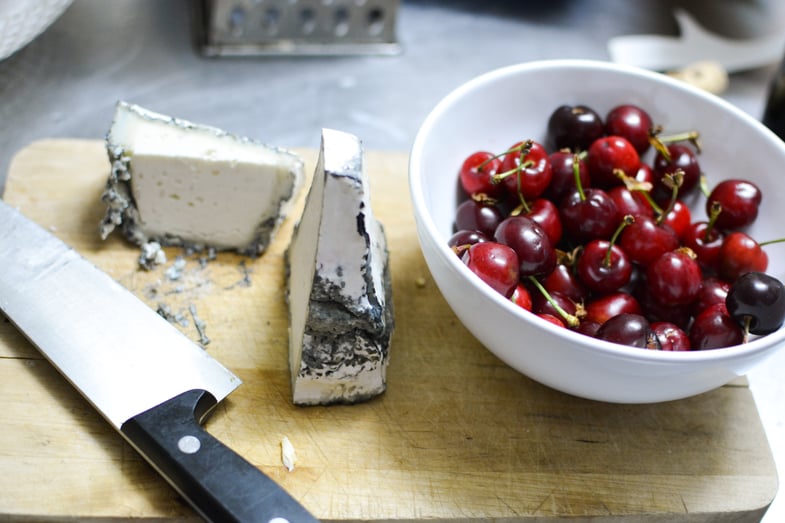
An appetizer for one of our homemade meals: ripe cherries and local goat cheese purchased at the Cádiz market.
Sand sweeping against the feet
the sol beaming against my face
Morocco to the left of me with a Moroccan to the right
sand dunes the size of ship wrecks
gazing at the blue dazed sky
thinking of home
but wanting to stay
en Espana forever
~ Emma Walsh
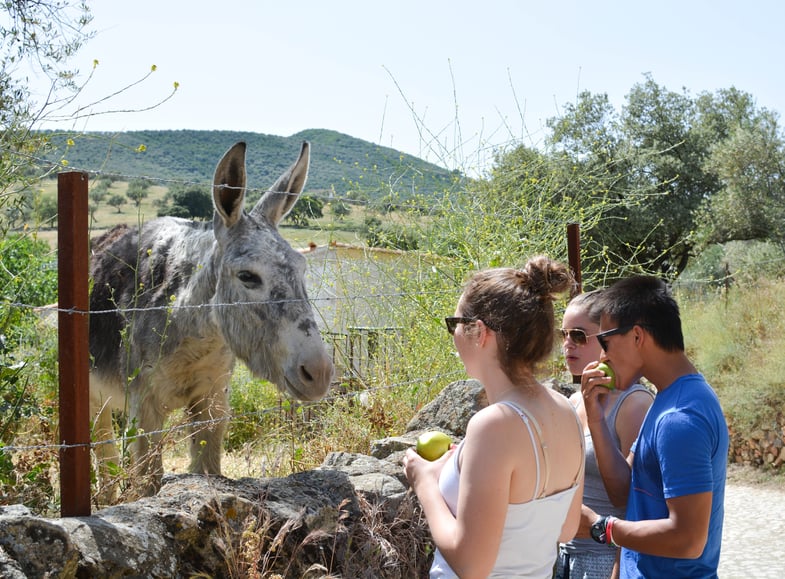
One of our stops: Santa Olalla del Cala, Huelva province
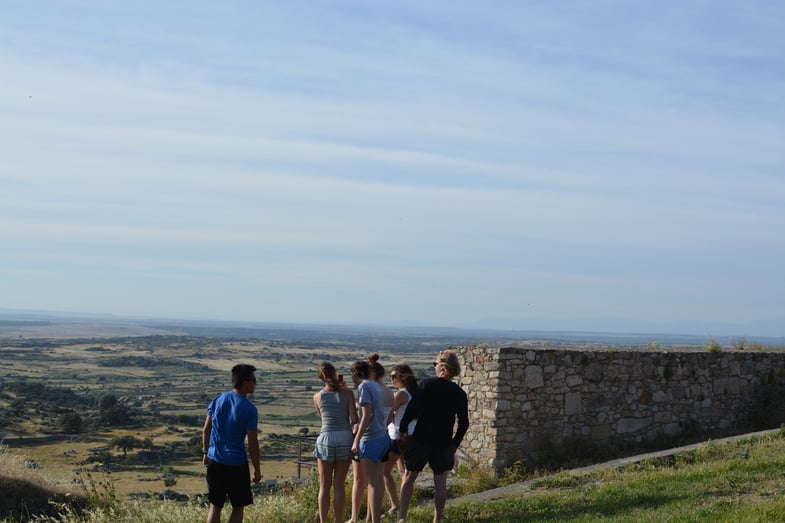
On another stop students admire the views from the heights of Trujillo of the meseta of Extremadura. Next stop, Segovia and the last week of the term.







